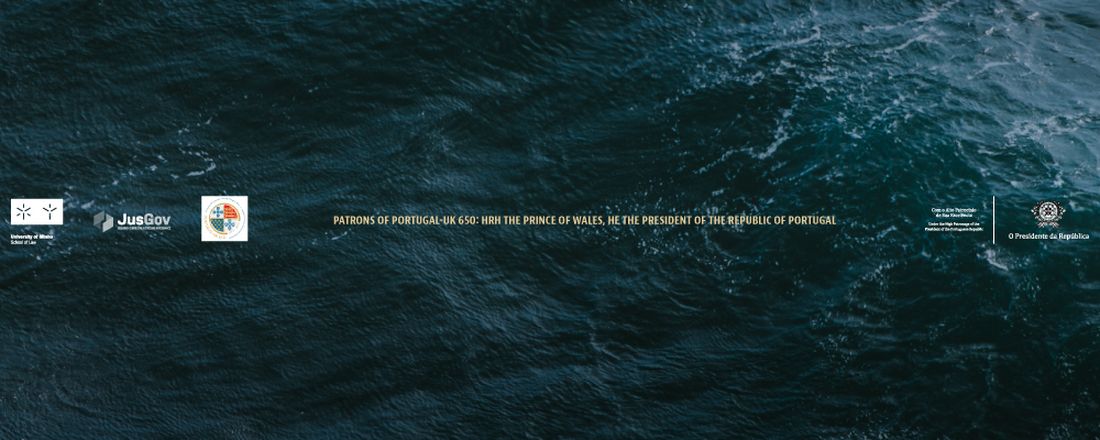PT
O início formal da Aliança Luso-Britânica, a mais antiga aliança diplomática ainda em vigor, encontra-se em três tratados do século XIV: o Tratado de Tagilde (10 de julho de 1372), o Tratado de Londres (16 de junho de 1373) e o Tratado de Windsor (de 9 de maio de 1386).
O Tratado de Tagilde, firmado na Igreja de S. Salvador de Tagilde (município de Vizela, distrito de Braga), entre o rei D. Fernando I de Portugal e os representantes de João de Gante, Duque de Lencastre e quarto filho do rei Eduardo III de Inglaterra, é considerado o preâmbulo da aliança que ainda hoje vigora. Durante mais de seis séculos de existência, a Aliança Luso-Britânica superou as mais desafiantes contingências históricas, incluindo duas Guerras Mundiais, a ascensão e queda de impérios, revoluções e descolonização, multilateralização das relações internacionais, integração europeia e o fim da Guerra Fria.
A Conferência Interdisciplinar “A Aliança Luso-Britânica: Balanço do passado e perspetivas de futuro”, que terá lugar na Universidade do Minho (Braga, Portugal) de 6 a 9 de julho de 2022, assinala o 650º aniversário do Tratado de Tagilde com um espaço criativo de diálogo e de intercâmbio de conhecimentos entre investigadores de diversas áreas do saber. O encontro deverá permitir uma compreensão mais profunda do passado e do presente da aliança, assim como perspetivar possíveis reverberações futuras.
Esta conferência é organizada pela Escola de Direito e o Centro de Investigação em Justiça e Governação da Universidade do Minho em associação com o Portugal-UK 650. Conta com o apoio da Reitoria da Universidade de Minho.
ENG
The formal beginning of the Anglo-Portuguese Alliance, the oldest diplomatic alliance still in force, is found in three treaties dating from the fourteenth century: the Treaty of Tagilde (10 July 1372), the Treaty of London (16 June 1373), and the Treaty of Windsor (9 May 1386).
The Treaty of Tagilde, signed at the Church of São Salvador of Tagilde (Vizela municipality, Braga district), by D. Ferdinand I of Portugal and the representatives of John of Gaunt, Duke of Lancaster and son of Edward III of England, is considered the preamble of the alliance that remains in force to this day. During more than six centuries of existence, the Anglo-Portuguese Alliance has survived the most challenging of historical contingencies, including two world wars, the rise and fall of empires, revolution and decolonisation, the multilateralization of international relations, European integration and the end of the Cold War.
The Interdisciplinary Conference “The Anglo-Portuguese Alliance: Taking Stock of the Past and Envisioning the Future”, which will take place at the University of Minho (Braga, Portugal) from 6 to 9 July 2022, marks the 650th anniversary of the Treaty of Tagilde with a creative space for dialogue and interchange of knowledge among researchers from different areas of knowledge. The conference aims to bring about a deeper understanding of the Anglo-Portuguese Alliance, its past and present, and reflect on possible future reverberations.
This conference is organized by the School of Law and the Centre for Research in Justice and Governance of the University of Minho in association with Portugal-UK 650. It has the support of the Rectory of the University of Minho.
Coordenação Científica / Scientific Coordination
Alexandra M. Rodrigues Araújo (JusGov/University of Minho), João Sérgio Ribeiro (JusGov/University of Minho), Mário Ferreira Monte (JusGov/University of Minho)
Comité Organizador / Organising Committee
Alexandra M. Rodrigues Araújo (JusGov/University of Minho), Marco Gonçalves (JusGov/University of Minho).
Instituições Parceiras / Partner Institutions
University of Oxford; Centre for the History of Society and Culture, University of Coimbra; Research Centre in Political Science, University of Évora/University of Minho; Institute for Political Studies, Católica University – Lisbon; Institute Iuris, University of Lisbon.
Comissão Científica / Scientific Committee
Anabela Gonçalves (JusGov/ University of Minho), Andreia Barbosa (JusGov/University of Minho), Carlos Abreu Amorim (JusGov/ University of Minho), Cristina Dias (JusGov/University of Minho), Hugo Flores (JusGov/University of Minho), Joana Aguiar e Silva (JusGov/ University of Minho), João Carlos Espada (IEP, Católica University– Lisbon), Joaquim Freitas da Rocha (JusGov/ University of Minho), José Pedro Paiva (CHSC, University of Coimbra), Liam Gearon (University of Oxford), Marco Gonçalves (JusGov/ University of Minho), Margarida Seixas (Iuris, University of Lisboa), Maria de Assunção Vale Pereira (JusGov/ University of Minho), Maria João Rodrigues de Araújo (University of Oxford), Maria José Azevedo Santos (CHSC, University of Coimbra), Maria Miguel Carvalho (JusGov/ University of Minho), Miriam Afonso Brigas (Iuris, University of Lisbon), Owen Rees (University of Oxford), Pedro Madeira Froufe (JusGov/ University of Minho), Silvério Rocha e Cunha (CICP/University of Évora), Teresa Pinto Coelho (Nova University), Thomas F. Earle (University of Oxford)

